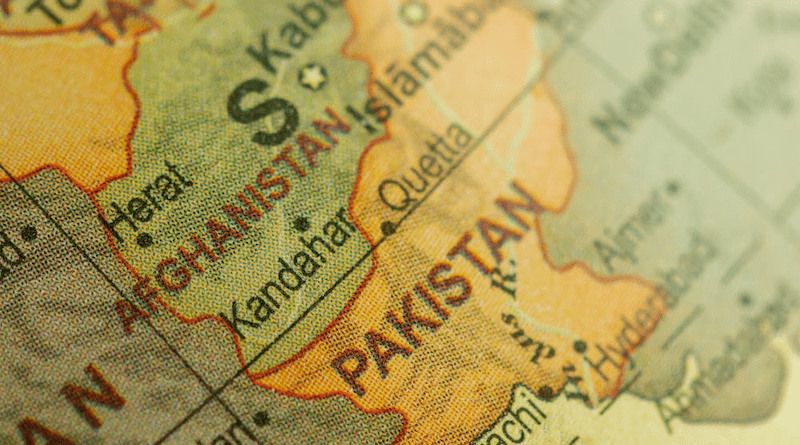Recommencement Of Energy Initiatives (CASA-1000, TAPI, And TUTAP): A Shared Destiny For Pakistan And Afghanistan – OpEd
By Anum Khan
The recent announcement from the International Energy Agency (IEA) Deputy Prime Minister’s Office regarding the resumption of major transit and energy projects in South Asia, including CASA-1000, the TAPI Pipeline, and the Turkmenistan-Uzbekistan-Tajikistan-Afghanistan-Pakistan (TUTAP) electricity transmission line, carries significant implications for the energy and developmental landscape of the region.
It is a critical time for the resumption of these Central Asia-South Asia power projects, not only as critical infrastructural endeavors but also as strategically important projects that provide significant opportunities for intertwined destinies of Pakistan and Afghanistan. It underscores the necessity for a united front to overcome security concerns and pave the way for mutual progress.
The geopolitical relationship between Pakistan and Afghanistan is characterized by its complexity. Geographically, they share a contiguous border marked by its porous nature, which has historically presented security challenges. Moreover, both nations have experienced periods of conflict and instability that have impacted their bilateral ties. However, the link between Pakistan and Afghanistan transcends geographical and historical boundaries, rooted in the intricate web of people-to-people connections and a profound sense of shared destiny.
CASA-1000, TAPI, and TUTAP hold great significance for South Asia. The resumption of energy projects, including CASA-1000, TAPI, and TUTAP, stands as a testament to the mutual interests shared by Pakistan and Afghanistan. These projects offer a credible model for complex interdependence amid prevalent security concerns, specifically when there are interstate militancy concerns involved, extending beyond mere energy security to encompass economic growth, employment generation, and regional connectivity. To comprehend their significance, it is essential to delve into each project individually:
The CASA-1000 Central Asia-South Asia power project aims to transmit surplus electricity from Kyrgyzstan and Tajikistan to Pakistan and Afghanistan, with its significance extending beyond addressing the energy deficit in these countries. It also serves as a platform for fostering regional cooperation, providing the necessary foundation for stable energy supplies, which are pivotal for economic development and job creation. Similarly, the TAPI Pipeline, which facilitates the transportation of Turkmenistan’s natural gas to Afghanistan, Pakistan, and India, transcends its primary function of meeting energy needs. It carries the potential to promote regional peace and stability, thereby furthering economic integration. Finally, the TUTAP project, an electricity transmission line linking Turkmenistan, Uzbekistan, Tajikistan, Afghanistan, and Pakistan, promises to provide much-needed electricity to Afghanistan and Pakistan, simultaneously improving living conditions and supporting industrial growth in the region. These projects collectively represent a significant step toward regional energy security and economic cooperation. Challenges and Opportunities.
Engagement of international organizations and enhanced diplomatic initiatives are crucial components for realizing these energy projects and establishing a stable and conducive environment for their successful implementation. International organizations, notably the International Energy Agency (IEA), play a critical role in facilitating and mediating the progress of major energy projects like CASA-1000, TAPI, and TUTAP. Their involvement is essential for orchestrating cooperation and coordination among participating nations, addressing complex issues related to financing, technical assistance, and dispute resolution that often arise during the execution of large-scale infrastructure projects, particularly in regions marked by geopolitical sensitivities and security challenges.
In addition, intensifying diplomatic efforts is imperative to comprehensively address the security concerns associated with these projects. Diplomacy serves as a vital tool for conflict prevention, resolution, and mitigation, necessitating open and constructive dialogue among concerned nations to articulate security apprehensions and develop collaborative strategies for effective risk mitigation. These diplomatic endeavors should consider not only immediate security issues but also the broader regional and geopolitical dynamics that impact the success and sustainability of these energy projects.
Furthermore and considerably, the enduring security challenges faced by Afghanistan assume a critical role in the resumption of energy projects, specifically CASA-1000, TAPI, and TUTAP. These challenges encompass a spectrum of issues, ranging from insurgency and terrorism to political instability. They accentuate the intricate nature of executing large-scale infrastructure initiatives within a historically unstable geographical context.
Additionally, historical instances underscore the capacity of neighboring nations to forge collaborative efforts in addressing shared obstacles. This historical perspective lends credence to the feasibility of cooperation between Pakistan and Afghanistan, despite the prevailing security concerns. Furthermore, the reference to Pakistan’s substantial experience in countering terrorism and extremism accentuates its potential as an invaluable partner in assisting Afghanistan in achieving stability. Pakistan’s reservoir of knowledge, acquired through its own tumultuous experiences, offers a repository of insights and expertise that could prove instrumental in navigating Afghanistan’s security challenges. Consequently, this analysis underscores the imperative for a comprehensive exploration of historical precedents, a meticulous examination of practical mechanisms for capitalizing on Pakistan’s expertise, and a thorough evaluation of potential benefits and risks. Such an evaluation should be conducted within the overarching framework of the regional and geopolitical context.

